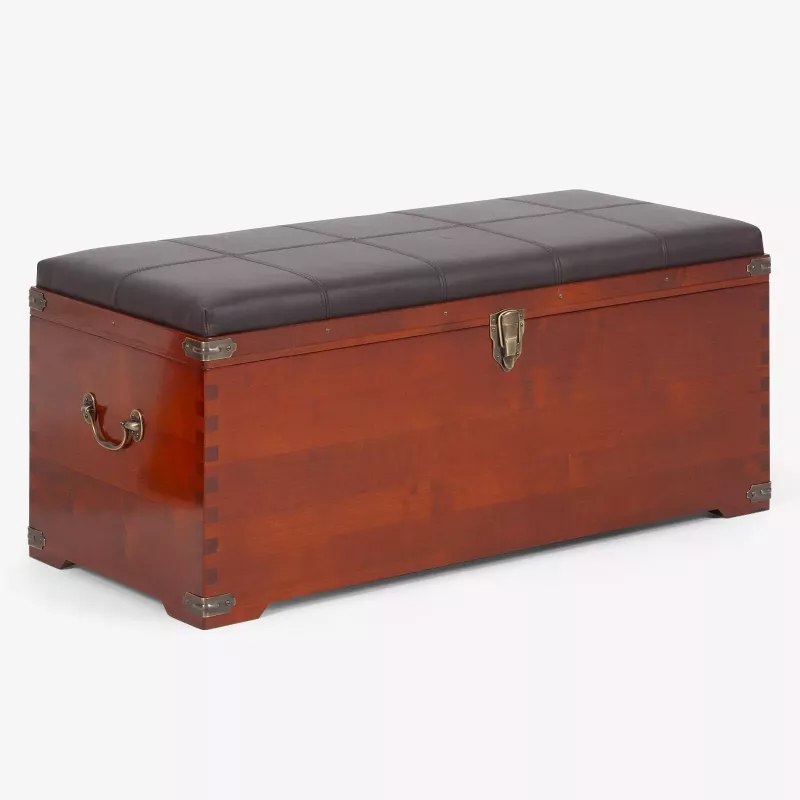NELSON - Valet stand
Reference : STAR-0055
Dimensions : W49 x D34 x H115 cm
With its rounded finishes, this servant will take good care of your clothes. We guarantee its utmost discretion.

Custom manufacturing

Premium materials

Traditional assemblies

Exceptional finishes
Product informations
Features
- Tie holders
- Three pants holders
Finishes
- Wood varieties : prunus avium (cherry), Entandrophragma cylindricum (sapelli), Entandrophragma utile (sipo), Juglans nigra (black walnut)
- Rosewood varnish finish
- Solid brass hardware : screws, hinges, tie holder
- Engraved and inked Starbay bone logo
Technical information
- Furniture delivered already assembled
- Parcel : W56 x D26 x H127 cm / 16 kg (2pcs)
Maintenance tips
- Remove dust with an anti-static or slightly damp cloth
- Do not apply wax to avoid clogging the varnish
- Avoid cleaning with products that could potentially be abrasive to varnish
- Always protect surfaces before applying liquids or heat
- Nourish leather with body milk (for baby ideally)

Secure
payment

Made-to-measure
delivery

Customer service
and workshops in France

Click
& Collect
You may also like
Previous
Next



















